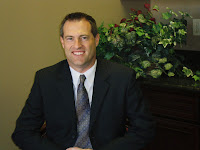| S&C Holiday Party 2010 |
Martha Diaz - Martha has been working in the area of Arizona workers compensation since 1979. With over 32 years of experience handling Arizona work injury claims, Martha has worked on literally tens of thousands of cases! She is currently our intake specialist and meets with all potential new clients. Martha and I have worked together since 1992 - everything I know about workers compensation I learned from Martha!
Nola Dierken - Nola has worked as a paralegal for several Arizona workers comp law firms representing both insurance companies and injured workers since 1989. Nola and I have also worked together since 1992 on thousands of cases. She currently works as my litigation paralegal. Nola's great organizational skills make up for my lack of organization!
April Snow - April is our business manager and is also married to my older brother Kirk! Before joining Snow and Carpio, April owned her own large roof tile manufacturing company for seven years. April has taken the firm to another level with her business development and customer service skills.
Melissa Felix - Melissa has worked in the workers compensation field since 2004. She works now as my pre-litigation paralegal. Melissa may be one of the friendliest people you ever meet - seriously!
Angelina Acosta - Angie started with our firm as a receptionist in 2006 when she was just 19 years old. We quickly realized that she could do a lot more than answer phones and she has moved up to legal secretary and is currently working as Alex Carpio's pre-litigation paralegal.
Crystal Rios - Crystal was the first employee hired by the firm back at the start in 2003. At the time, she was attending the Paralegal program at Phoenix College. She has worked her way through undergraduate studies at University of Phoenix and recently graduated with her Juris Doctorate degree from Phoenix School of Law.
Ligia Enriquez - Ligia is another employee who started as our receptionist in 2008 and moved up to paralegal. Ligia is the paralegal on all of our Social Security Disability cases.
Erica Gonzalez-Melendez - Erica and I met in Law School at ASU in the late 1990's. After law school, she worked in the areas of personal injury and for a time as a city prosecutor. After taking time off to have two children, Erica has returned to practice in the areas of workers compensation and also handles some family law, criminal law, and immigration cases. She also sits on the Board of Directors of Chicanos Por la Causa.
Elsa Flores - Elsa is our newest receptionist and also attends Phoenix College part-time. She has already far exceeded our expectations and recently did the entire translation of our website into Spanish. We hope she will be with the firm for many years.
Combined, the members of our firm's team have handles literally thousands of Arizona workers compensation cases over 5 decades! Most of our team speaks spanish and almost all are native Arizonans. Some of us have worked in several other firms handling workers compensation and we all agree that Snow and Carpio is the best!!!
Chad T. Snow is an attorney handling Social Security Disability and Workers Compensation claims in Arizona. He can be reached through his firm's website at Snow, Carpio, and Weekley or at (602) 532-0700 in the Phoenix office and (520) 647-9000 in Tucson.










